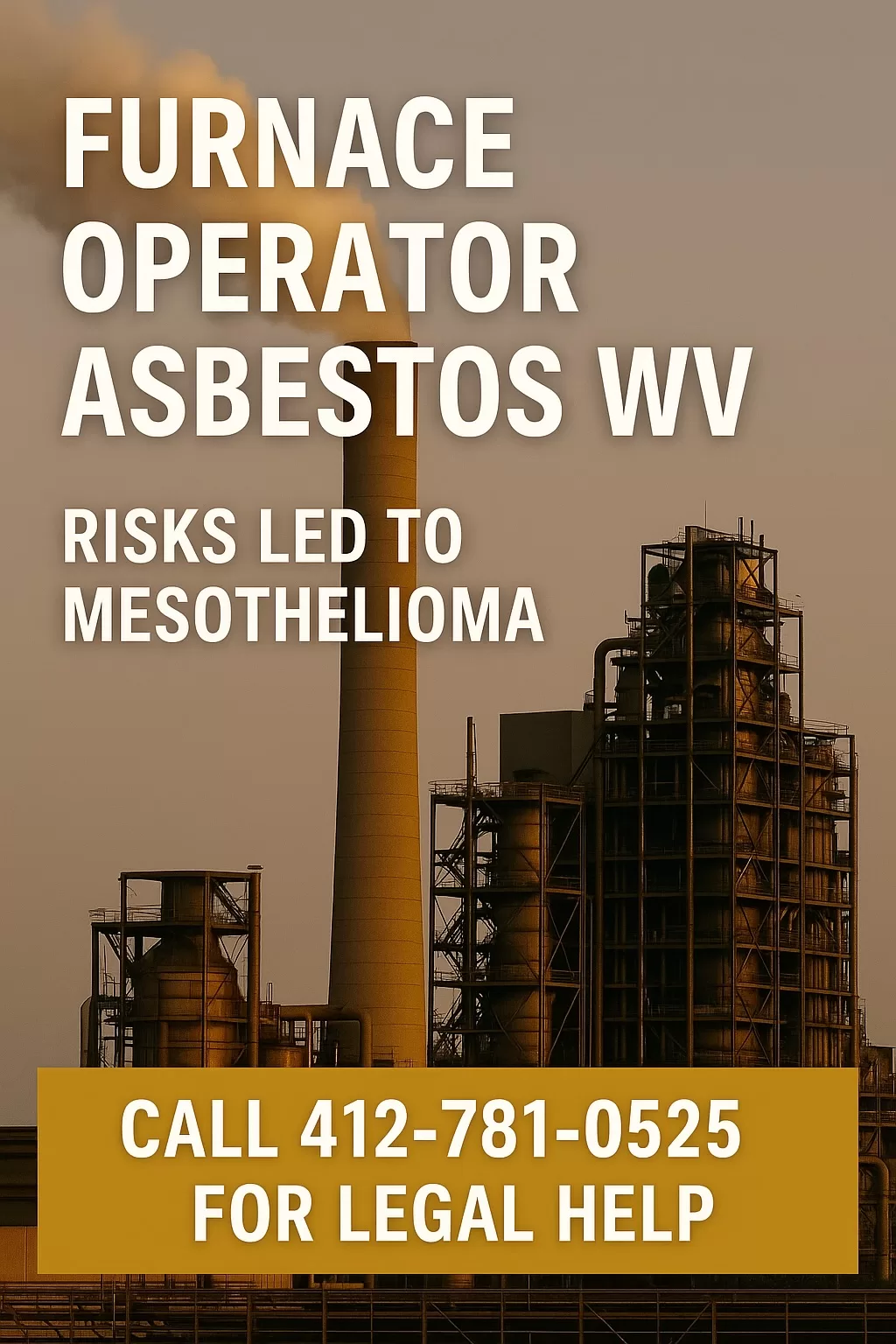Furnace Operator Asbestos WV exposure was routine across steel mills, chemical plants, glass factories, and powerhouses. In places like Weirton Steel, Koppers, Union Carbide, and Monongahela Power, furnace operators worked in extreme heat surrounded by asbestos-lined equipment, insulated pipes, and refractory bricks.
These men often had no idea they were inhaling deadly asbestos fibers daily. And worse—those fibers didn’t stay at work. Contaminated clothing came home at night, exposing wives and children to what is now known as take-home asbestos exposure.
If you or a loved one developed mesothelioma or another asbestos-related illness after working as a furnace operator in West Virginia, you may qualify for significant compensation.
Risks in Furnace Operator Asbestos WV
Furnace operators were constantly exposed through:
- Firebrick lined with asbestos
- Damaged or deteriorating pipe insulation
- High-temperature gaskets and sealants
- Asbestos welding blankets and gloves
- Poor ventilation during repairs or relining
These materials were used to manage extreme heat—but they turned furnace rooms into asbestos exposure zones.
Legal Help for Furnace Operator Asbestos WV and Their Families
Whether you worked in Moundsville, Charleston, New Martinsville, or Parkersburg, we know the jobsites. We know the contractors. And we know how to build a case that proves your exposure.
At the Law Offices of Lee W. Davis, we’ve helped furnace operators, boilermakers, bricklayers, and their families win asbestos settlements—even decades after exposure.
📞 Call 412-781-0525 or use the form below for a free consultation.
Check If Your Family Was Exposed
Get your free guide instantly + a confidential case review.
🔒 100% Confidential. No obligations.
💼 No fees unless we recover money for you.
🏠 Home or virtual appointments available across West Virginia.
You’re Not Alone—We Can Help
Whether your exposure came directly from furnace work or secondhand from a loved one, the law may be on your side. Don’t wait—statutes of limitations may apply

